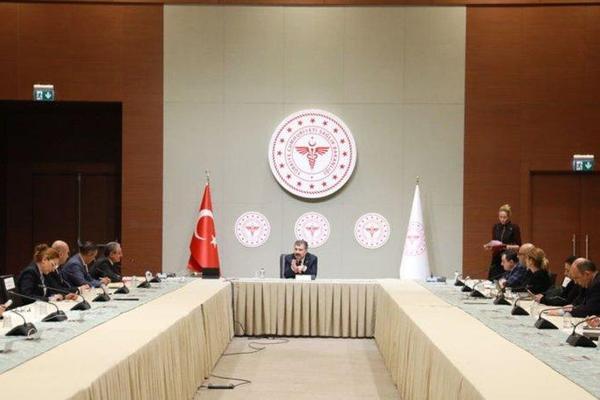New body set up to fact-check information in virus struggle
NURAY BABACAN - ANKARA


A new subcommittee established under the body of the Social Sciences Board will prepare recommendations to fact-check and determine inaccurate and incomplete information about COVID-19 and will tackle false claims that create panic among the public.
The board, which works on the virus’ impact in terms of sociology, communications, psychology, religion sociology and statistics, held its third meeting on June 23 under the helm of Health Minister Fahrettin Koca.
In line with the decisions taken by the board, authorities will ensure rules are strictly followed in the fight against the coronavirus outbreak and people will continue their daily routines and go out, instead of reapplying full-on restrictions previously imposed.
However, the findings obtained so far conclude that citizens failed to understand the importance of the rules sufficiently.
As the new messages to be given to the people about the coronavirus were evaluated during the meeting, a sub-commission was established to carry out a communication strategy and a media campaign in this context.
The commission will also combat information that stirs panic among the public while preparing suggestions to tell the correct and accurate information about the virus.
Campaigns will be carried out and data showing the results will be shared in order to eliminate false information, like misleading claims that masks are not preventative against COVID-19.
The fight against COVID-19 will also be carried out by taking into account societal psychology and sociology.
The demographic structure of the country will be taken into consideration and messages will be prepared according to the regions based on local dynamics.
Pressures and troubles caused by the restrictions in the society also will be taken into consideration.
The target audience in the messages to be spread is young people who have reportedly violated the rules the most.
While each age group will be approached with different arguments, the level of anxiety there is among people will be determined meticulously before the strategies are rolled out.
Youth fail to comply with rules
Despite an obligation for people to wear face masks in public in 55, out of 81, provinces in Turkey as part of measures to curb the spread of the virus, it has emerged that especially young people are not complying with the rules.
Speaking to Demirören News Agency, a young man identified only as Göktuğ S. in the Aegean province of İzmir who refuses to wear a mask while outside complained that the mask was making him sweat a lot.
“They say that everyone will eventually be infected. Those who will die will die and those who will survive will survive,” he said. “Life goes on,” he added.
“We already live this life by chance. Who cares if we die,” said Emir Ö., another young man, when asked why he wasn’t wearing a mask.
Noting that there is slackness among the youth, another young woman, identified only as Nehir, said that the recklessness was a result of everyone spilling out on the streets as soon as the country began reopening after stay-at-home orders and weekend lockdowns.
“If young people were always outside, there would not be this much density. Sometimes we think the virus is finished,” she said, speaking while her mask was beneath her chin.
People in 55 provinces will be fined 900 liras (around $130) if they fail to wear face masks in public.
